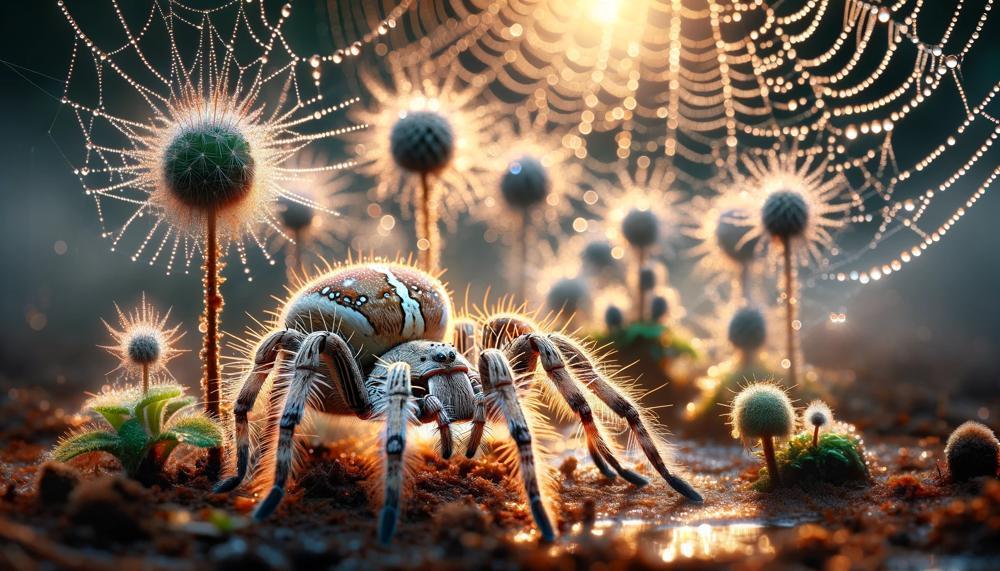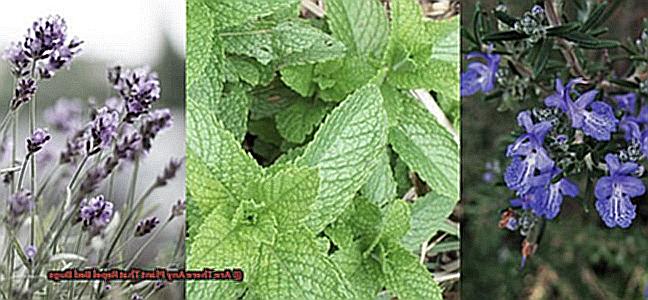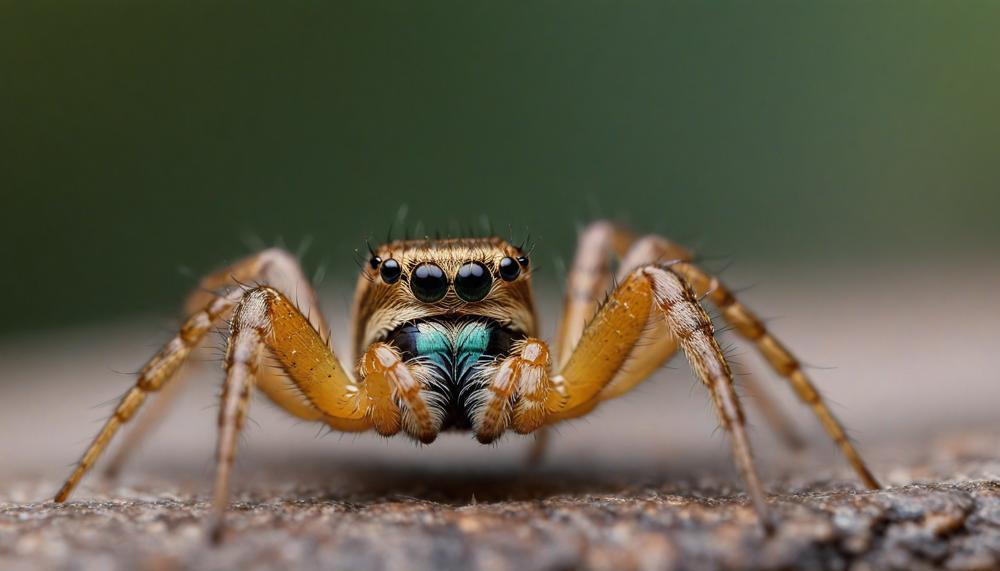In the world of gardening, spiders can be both a friend and a foe. While they play a crucial role in controlling pests, an overabundance in your green space might not always be welcome.
This post delves into effective management techniques to maintain a balanced ecosystem in your garden.
Here, we’ll explore a variety of approaches to ensure that your leafy sanctuary remains a place of beauty and tranquility, without resorting to harsh chemicals. Our focus will be on:
- Natural Repellents: Utilizing plants and substances that deter spiders.
- Environmental Adjustments: Modifying your garden’s layout and conditions to make it less inviting for spiders.
- Biological Control: Encouraging spider predators to take up residence in your garden.
Join us as we navigate through these gentle yet effective strategies, ensuring your garden remains a thriving, spider-manageable zone.
Table of Contents
Minimize Hiding Spots
To minimize hiding spots for spiders in your garden, it’s pivotal to adopt a multi-faceted approach that targets the different aspects of their habitat and survival. Here’s a structured breakdown of effective methods:
Garden Hygiene:
- Regularly clear garden debris, such as leaves and twigs.
- Eliminate piles of wood, compost, and rocks where spiders might nest.
Vegetation Management:
- Keep plants and bushes well-trimmed to avoid dense foliage where spiders can hide.
- Maintain grass at a low height to reduce shelter for spiders.
Structural Adjustments:
- Remove or seal off unused garden structures like old sheds or planters.
- Ensure that compost is kept in closed bins to discourage spider residency.
Natural Repellents:
- Use a blend of essential oils (e.g., peppermint, lavender) as a spider deterrent.
- Integrate spider-repelling plants such as mint and eucalyptus in your garden.
Encourage Predatory Insects:
Introduce or attract beneficial insects like ladybugs or lacewings to curb the spider’s food source.
Regular Maintenance:
- Promptly break down any spiderwebs you come across.
- Apply appropriate, garden-safe insecticides to manage the overall insect population, reducing spiders’ food sources.
Professional Assistance:
For infestations or concerns with venomous species, consider consulting pest control services.
Get Rid of Food Sources
To effectively remove potential food sources for spiders in your garden and discourage their presence, here’s a strategy you can follow:
Minimize Insect Populations:
Spiders thrive where their prey is abundant. Cutting down on the insect population will make your garden less inviting for spiders. Consider treating your garden with a suitable insecticide, but be mindful of beneficial insects and pollinators. Always opt for eco-friendly and non-harmful options where possible.
Tidy Up:
| Before | Action | After |
| Wood Piles | Relocate away from garden | Reduced hiding spots |
| Compost Piles | Use a closed composting bin | Less accessible food source |
| Stacked Rocks | Clear out or reorganise | Fewer spider shelters |
Regular Maintenance:
Clear out webs as you spot them; this sends a clear signal to spiders to pack up and leave.
Wear gloves and long sleeves to avoid bites when doing so.
Spider Deterrents:
Look for products developed to deter spiders. These can range from natural essential oil sprays to more robust chemical deterrents.
Apply according to instructions and focus on areas where spiders are more likely to enter or set up residence.
Professional Help:
In the case of venomous or particularly stubborn spider infestations, don’t hesitate to call in the pros. They can safely manage the situation and provide advice for ongoing prevention.
Remember, a well-kept garden is less likely to play host to an array of insects and, by extension, spiders.
Break Down Spiderwebs
Spiders employ their webs, spun from silk, as effective traps for ensnaring prey.
The sticky strands ensnare insects, signaling the spider with vibrations to pounce and secure their meal. Disassembling these silk traps is key for spider management in gardens.
How Spiders Trap Prey with Webs
- Detection: Spiders sense prey through vibrations in the web.
- Immobilization: The prey is swiftly wrapped in silk, often accompanied by venom to paralyze.
- Consumption: Once immobilized, spiders consume their prey at their leisure.
Significance of Breaking Down Spiderwebs in Gardens
| Reduction in Food Source | Without webs, spiders can’t catch insects, pushing them to relocate. |
| Disruption of Breeding | Web removal impedes the reproduction cycle, reducing spider populations. |
| Decrease in Insect Captures | Less prey caught in webs means fewer spiders attracted to the area. |

Removing webs not only hinders a spider’s ability to feed and breed but also curtails the overall insect population, making your garden less alluring for these eight-legged critters.
It’s a nifty way to clean up the joint, too. Though snipping webs is crafty, be mindful, it’s not a catch-all solution.
Some spiders prefer a good old-fashioned hunt on the solid ground or within foliage. In such instances, decluttering and natural predators might just do the trick.
Use Deterrents
Keeping eight-legged critters at bay doesn’t have to be a head-scratcher.
Here’s a pocketful of natural tricks to keep your garden spider-free.
| Deterrent | Method | Why It Works |
| Ladybugs | Introduce to garden | They reduce the food source by eating aphids. |
| Peppermint Oil | Spray diluted solution | Spiders detest the strong smell. |
| Cedar Wood | Place chips or blocks | The scent acts as a natural repellent. |
| Chestnuts/Tobacco | Scatter around plants | Allegedly unpleasant for spiders. |
| Vinegar and Essential Oils | Spray diluted mixture | The acidity and strong odours repel spiders. |
Remember, you’ll need to keep up with regular garden maintenance for these tricks to keep their punch. A nice trim, a tidy-up, and a spritz now and then should keep the critters from crashing your plant party.
Conclusion
It’s time to tie up the loose ends of our conversation on controlling spiders in the garden when the sun sets. Instead of serving as a haven for eight-legged intruders, your garden ought to be an oasis. You may make your home less inviting for spiders by using natural repellents like peppermint oil and raising a swarm of predatory insects like ladybugs.
Maintain a well-kept landscape, devoid of debris, to deter spiders from entering your peaceful haven. Dismantle their dining quarters by breaking through their silken snares on a regular basis, and for peace of mind, seek the gentle direction of expert pest treatment when deadly kinds approach.
The strategy chart we have provided is your guide to keeping your garden calm and well-balanced. To ward off the arachnid audience, a watchful gardener uses the shears of diligence and the spritz of nature’s essence. You may make sure that spiders in your lush paradise remain passive observers rather than engaged participants by carefully following these procedures every time.





